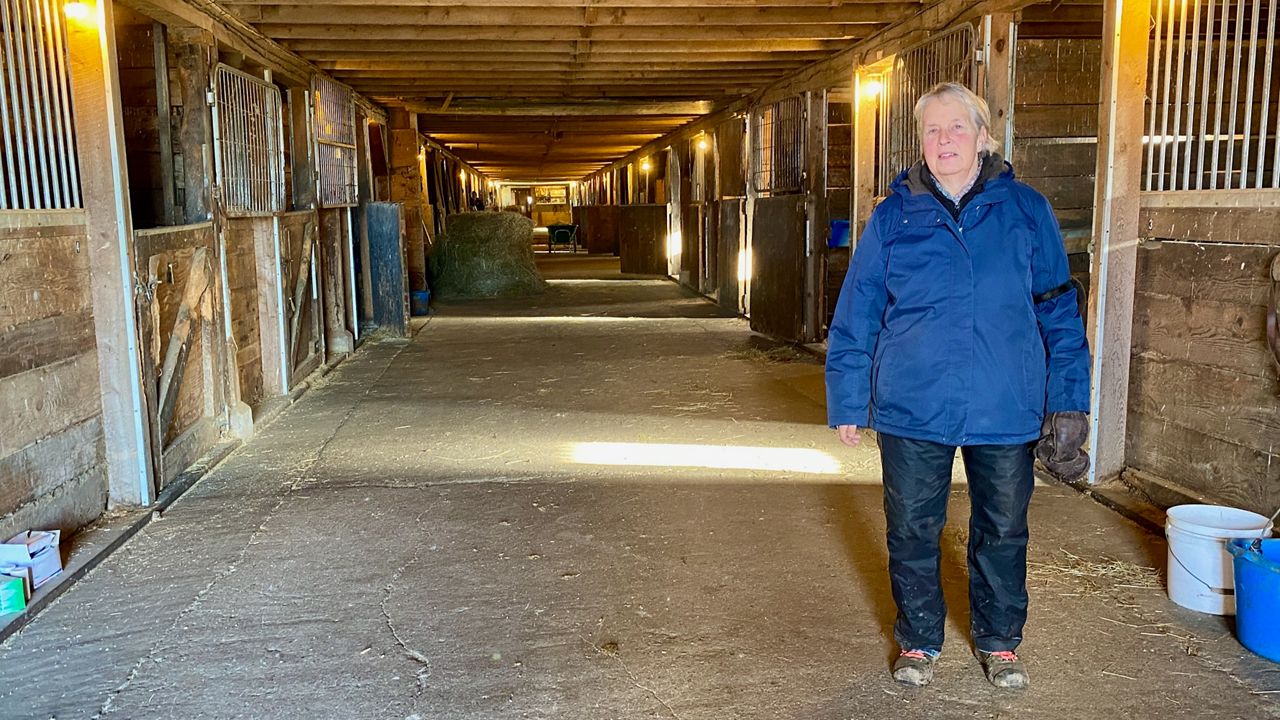Lynn-Marie Plouffe, owner of Dupuis Farm in Saco, said her farm has been breeding and raising horses for three generations, so she hopes Michael Cianchette fulfills his plans to bring harness racing back to southern Maine.
“I’ve made a big investment in this industry,” she said. “I’d like it not to go away.”
After the closing of the long-running Scarborough Downs racetrack in Scarborough, which many regarded as a blow to the state’s racing industry, Cianchette, a Cumberland native, made headlines earlier this year when he announced he was starting a racing company at the Cumberland Fairgrounds. He also said he was seeking a more permanent home for a new track somewhere in southern Maine, a successor to Scarborough Downs.
With the end of his first racing season fast approaching, Cianchette said he is more convinced than ever that his venture will succeed.
“The season has gone phenomenally well,” he said.
Scarborough Downs held its last race in November 2020. Since then, the only permanent full-time racetrack in the state has been the Hollywood Casino Raceway in Bangor.
Henry Jennings, executive director of the Maine Harness Racing Commission, said the industry needs a second permanent track to stay afloat.

“I think it’s fundamentally critical to the survival of the industry,” he said.
Even a busy track, Jennings said, would struggle to support an entire state of racers and their horses, many of whom rely on racing for their livelihoods.
“I think it would be a huge challenge,” he said.
The industry has seen a decline in recent years, even before the closure of Scarborough Downs. Data from the Maine State Harness Racing Commission shows live and off-track wagering trends have dropped steadily since 2002, when betting peaked at $70 million, to less than $30 million in 2016.
Exact numbers of horses and racers are difficult to find, but Plouffe noted one telling sign of the industry’s woes in the Standardbred Breeders Program, which is run by the state Department of Agriculture to encourage horse breeding within the state. At its peak, she said, the program was producing 400 mares for breeding statewide, but that was back in the early 1990s. Today, she said, that same program produces only about 100 mares.
“It’s because of the uncertainty of the industry,” she said.
Plouffe’s farm uses a breeding program to produce race horses for sale and boards horses for other owners. Her 300-acre farm contains more than 70 stalls, which is enough to handle the busiest periods of the year. In December, which she calls “my slow time,” she still stables 48 horses. When asked to name other farms like hers, she recalls only two off the top of her head, one in Cumberland County and one in Penobscot County.
“There used to be quite a few in this area, but they’ve all gone out of business,” she said.
Plouffe, 70, said she’s held onto her farm because she has diversified over the years, from beef cattle to chickens to a 20-megawatt solar farm on 67 of her acres she is leasing to a company from Connecticut, which she said will start construction in February.
“I think I’m going to be solid enough to go through the tough times,” she said.
But Plouffe knows not everyone is so lucky, and she hopes Cianchette’s new company will breathe life into harness racing in the state.
“I’m so glad to see that there’s some interest,” she said.
Cianchette’s company, First Track Investment, is a subsidiary of his family’s business, which owns and manages properties, including the Portland Regency Hotel and Casco Bay Ford in Yarmouth. He said he has taken the new business seriously, hiring Black Bear Racing, a national company with ties to similar racing industries in California, to manage day-to-day operations in Cumberland and arrange for simulcasts to allow people outside of Maine to bet on races.
Cianchette said his season started in May and runs through New Year’s Eve, a total of 58 racing days, and most of those days, he said, have seen anywhere from $50,000 to $70,000 in bets.
“It’s proved the concept that Maine racing, (if) done well, there’s a market for it,” he said.
Cianchette said the results so far have definitely met his expectations. His license allows him to run racing in Cumberland again next year, and he said he plans to do so. He is also moving ahead with plans to build a new racetrack in southern Maine, emboldened by the success he’s seen so far.
Cianchette declined to say where he plans to build, but Jennings said the prospect alone has given the industry a shot in the arm.
“It gives the horsemen hope about the future,” Jennings said.
As for Plouffe, she applauds Cianchette’s interest in supporting the industry that has been her family’s lifeblood for more than 100 years.
“It’s a positive force, no question,” she said.





